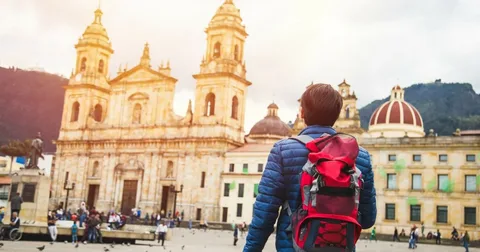Cultural Immersion Trips for Families: A Guide to Meaningful Travel
Fit blinders such as traveling in’ is an excellent way to go out together and discover new places, which is equally a means of sharing more than just culture, but communities. These trips allow families to move a little out of conventional tourism and get more involved with the people’s cultural practices in those destinations they visit. Thus, by focusing on cultural immersion trips, families can have a lot of fun while developing their and their children’s perspectives towards culture and people worldwide.
What Is Cultural Immersion Travel?
Cultural immersion travel refers to traveling to interact with a chosen destination. This type of travel does not necessarily involve a sightseeing tour or staying in some five-star hotel but getting intimately involved with the hosts’ ways of life. It can range from living with host families to joining festivals, visiting traditional seminars, or volunteering within the area. The concept is to let the families’ sample’ the cultures directly through a visit to let them see and even feel how different societies work.
Cultural mobility tours are among the most effective educational experiences that can teach families about tolerance, plasticity, and the kaleidoscope of world culture. Such experiences are no longer limited to tourism; they are transforming into the journey of life.
Choosing the Right Destination for Cultural Immersion
An evaluation of a cultural immersion trip means that the place is central to the trip’s definition. Certain nations and places are infamous for their old-world traditions and friendly people who freely interact in various activities. Parents should ensure that the chosen destination allows their families to engage with locals and have a successful opportunity to engage in cultural encounters.
Asia, Africa, South America, and Europe present a vast number of opportunities for transculturation. For instance, families can go on country-side tours around SE Asia, do craft making in SA, or dance at Eastern European fairs. As a result, to increase the interest of locals, it remains crucial to investigate places where people are friendly and welcoming to external guests.
Staying with Local Families
As any avid traveler knows, one of the most effective ways for your family to engage with a different culture is through home hospitality. It helps one closely examine the patterns, practices, and beliefs that define each culture. In many countries, homestay programs allow families to live with a family in the country, share meals, and grasp how they live and what they do.
While living with a host family, a child can learn how people in different countries live, what they eat, what kind of games they play, and what festivals they have. This experience is eye-opening because people learn a lot about other cultures and make friendships with families and hosts that will last a long time.
Participating in Cultural Activities and Workshops
Families can participate in a host of recognized local activities and other related cultural workshops for a complete cultural experience. Numerous community-based groups provide various social interactive exercises for potential travelers, including a pottery cooking course or learning how to dance, all aimed at educating them on culture.
For example, some clans in Japan might engage in tea dan or try paper folding, while in Mexico, such clans could accompany the family in weaving or pottery making. These activities, in addition to serving as entertaining moments, also help one get an insight into previous generations’ cultural skills and heritage.
Through these activities, issues of identity, values, and history that define local cultures are well understood by participating families. It is also an excellent way to create other forms of memories that are not necessarily tied to the tourist experience.
Engaging in Local Festivals and Celebrations
Cultural festivities are much loved about cultural interchangeability trips because such events are unique to the community being visited. They may be the community’s clearing values, beliefs, history, and all that one would want to identify with the community. They can be religious or harvest festivals, where each festival will give some or the other glimpses of the local culture.
When you visit a cultural festival as a family, you are surrounded by colors, tasty rhythms, and beliefs. Whether it’s a parade and dance or a religious ceremony and food bazaar, festivals are an excellent opportunity to explore a community.
Volunteering in the Local Community
Few things are more rewarding for families seeking an authentic interaction with the local culture than volunteering. Families can also choose volunteer programs in many communities to participate in different projects, including teaching English, conservation projects, and community development projects.
Apart from benefiting the societies that families encounter, volunteering actually fulfills a higher purpose in families’ trips. When interacting with native populations, families can get an opportunity to look at the accomplishments and struggles of the community in a new light. This kind teaches them something about empathy, cooperation, the world, and being a responsible part of it.
Conclusion
Most cultural trips involving families allow travelers to touch the world in an unparalleled, familiarized manner. Traveling with children is a perfect opportunity to meet locals, attend cultural events, and stay away from conventional attractions to realize many wonderful and exceptional aspects of the world around us. Such trips offer much more than academic values, such as boosting locals’ tolerance and appreciation for diversity.
Any time a family participates in a festival, lives with a host family, or vows to volunteer in community projects, cultural immersion allows families to make memories of life and have usable knowledge of what the world outside their backyard is like. More than ever, such experiences become valuable within the globalized world because they allow families to develop significant, educational, and culturally enriched interactions.
